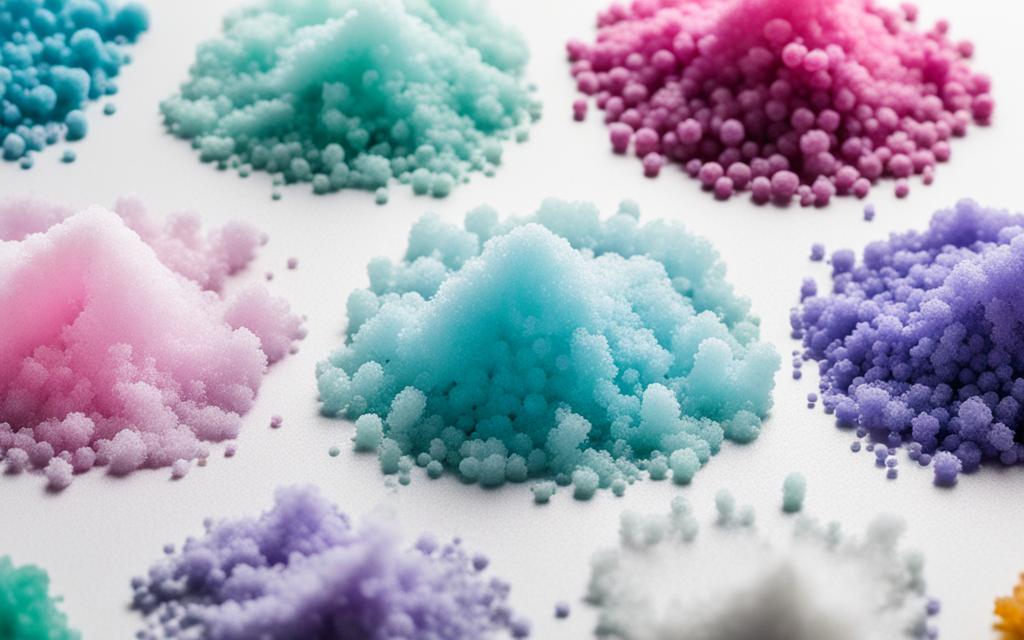Epsom salt, also known as magnesium sulfate, is a popular household remedy with a wide range of uses. One of the common questions people have is whether Epsom salt has any antibacterial properties and if it can effectively kill bacteria. In this article, we’ll explore the facts about the potential antibacterial effects of Epsom salt and examine the evidence supporting its use as a natural antimicrobial.
What is Epsom Salt?
Epsom salt, also known as magnesium sulfate, is a naturally occurring mineral compound composed of magnesium, sulfur, and oxygen. It is named after the town of Epsom in Surrey, England, where the salt was originally discovered. Epsom salt has a long history of use in various applications, ranging from health and wellness to gardening and household cleaning.
The unique chemical composition of Epsom salt, with its high concentrations of magnesium and sulfate ions, gives it a wide range of properties that make it a versatile and beneficial substance. Understanding the origins and characteristics of Epsom salt is crucial in appreciating its potential uses and effectiveness in different contexts.
| Composition | Properties | Uses |
|---|---|---|
| Magnesium sulfate (MgSO4) | – Naturally occurring mineral compound – Crystalline structure – Easily dissolved in water |
– Soaking baths – Gardening and lawn care – Household cleaning – Health and wellness supplements |
By understanding the fundamental nature of Epsom salt, we can better appreciate its diverse applications and potential benefits, which will be explored in the subsequent sections of this article.
Properties of Epsom Salt
Epsom salt is composed of the chemical compound magnesium sulfate (MgSO4), which has several unique properties that contribute to its various uses:
| Property | Description |
|---|---|
| Crystalline Structure | Epsom salt has a distinct crystalline structure, which gives it a unique, granular appearance. |
| Solubility | Epsom salt is highly soluble in water, making it easy to dissolve and incorporate into various applications. |
| Magnesium Content | Epsom salt is an excellent source of magnesium, which is an essential mineral for the human body. |
| Sulfate Content | Epsom salt also contains sulfate, another important mineral that plays a role in various bodily functions. |
| pH Neutrality | Epsom salt has a neutral pH, making it suitable for use in a wide range of applications without altering the pH balance. |
These unique properties of Epsom salt contribute to its versatility and wide range of uses, from personal care to gardening and beyond.
Does Epsom Salt Kill Bacteria?
The question of whether Epsom salt can effectively kill bacteria has been a topic of interest for many people. While Epsom salt does possess some antimicrobial properties, the extent of its effectiveness in killing bacteria is not as straightforward as it may seem.
Epsom salt, which is primarily composed of magnesium sulfate (MgSO4), has been studied for its potential antibacterial effects. The magnesium and sulfate ions present in Epsom salt can interact with bacterial cell membranes, potentially disrupting their structure and function. Additionally, the altered pH and osmotic environment created by Epsom salt may create unfavorable conditions for bacterial growth.
However, the scientific evidence on the antibacterial efficacy of Epsom salt is somewhat mixed. While some studies have shown that Epsom salt can inhibit the growth of certain types of bacteria, the overall effectiveness is generally considered to be mild and limited. The concentration of Epsom salt, the specific bacterial strains, and other environmental factors can all influence its antimicrobial properties.
It’s important to note that Epsom salt is not a substitute for conventional antimicrobial agents or medical treatments. While it may have some beneficial effects, it should not be relied upon as a primary means of treating bacterial infections or preventing the spread of harmful pathogens. Individuals should consult with healthcare professionals for appropriate medical advice and treatment options.
| Antibacterial Property | Potential Mechanism | Effectiveness |
|---|---|---|
| Disruption of bacterial cell membranes | Interaction of magnesium and sulfate ions with cell membrane components | Moderate |
| Alteration of pH and osmotic environment | Changes in the pH and osmotic balance within the bacterial cells | Mild |
| Inhibition of bacterial growth | Combination of membrane disruption and environmental changes | Limited |
In summary, while Epsom salt does possess some antimicrobial properties, its effectiveness in killing bacteria is generally considered to be mild and limited. It should not be relied upon as a primary means of treating bacterial infections or preventing the spread of harmful pathogens. Individuals should consult with healthcare professionals for appropriate medical advice and treatment options.
How Epsom Salt Works
The potential antibacterial properties of Epsom salt are primarily attributed to its chemical composition and the way it interacts with bacterial cells. Epsom salt, also known as magnesium sulfate (MgSO4), is composed of magnesium, sulfur, and oxygen atoms. When dissolved in water, Epsom salt dissociates into magnesium and sulfate ions, which can then interact with bacterial cells in several ways.
First, the magnesium ions in Epsom salt can potentially disrupt the cell membrane of bacteria, altering its permeability and leading to the leakage of essential cellular components. This disruption can weaken or even destroy the bacterial cell, inhibiting its ability to survive and reproduce.
Additionally, the sulfate ions in Epsom salt can create an osmotic imbalance within the bacterial cell, causing it to lose water and experience dehydration. This osmotic stress can further compromise the bacterial cell’s integrity and ultimately lead to its demise.
Furthermore, the presence of Epsom salt can alter the pH of the surrounding environment, creating a less favorable condition for bacterial growth. Certain bacteria thrive in specific pH ranges, and by shifting the pH, Epsom salt can hinder their ability to flourish.
| Mechanism of Action | Effect on Bacteria |
|---|---|
| Disruption of cell membrane | Leakage of essential cellular components, leading to cell death |
| Osmotic imbalance | Dehydration and weakening of the bacterial cell |
| pH alteration | Creation of an unfavorable environment for bacterial growth |
While Epsom salt’s antibacterial properties are not as potent as those of synthetic antimicrobial agents, its ability to disrupt bacterial cell integrity, create osmotic stress, and alter the pH of the environment can contribute to the inhibition of bacterial growth and potentially lead to their demise.
Conclusion
In summary, while Epsom salt does exhibit some antibacterial properties, its effectiveness in eliminating bacteria is generally considered to be modest and limited. The magnesium and sulfate ions present in Epsom salt have the potential to disrupt bacterial cell membranes, create osmotic stress, and alter the pH of the environment, all of which can contribute to the inhibition of bacterial growth.
However, it’s important to note that the antibacterial capabilities of Epsom salt are not as potent as those of more specialized antimicrobial agents. When it comes to treating bacterial infections or preventing the spread of harmful microbes, Epsom salt should be viewed as a complementary remedy rather than a standalone solution.
Nevertheless, Epsom salt’s versatility and accessibility make it a valuable household item for various purposes, including promoting relaxation, relieving muscle aches, and potentially supporting overall skin health. As with any natural remedy, it’s always advisable to consult with a healthcare professional before using Epsom salt for medicinal purposes or to address specific health concerns.










